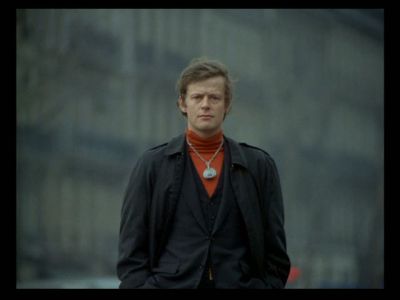JCM312/French New Wave III: Éric Rohmer (Discussion)
From Screenpedia
Jump to navigationJump to search- Group 4: According to Monaco and Rohmer himself, how is Rohmer using the word, "moral"? How is morality portrayed in Chloé and Monceau Bakery?
- Group 1: What is meant by "courtly love," in the context of Rohmer's films? Is it evident in Chloé and Monceau Bakery?
- Group 2: Monaco states that le pari ("the bet") is "the encompassing metaphor that Rohmer wants for the entire series" (p. 297). And he emphasizes "Pascal's wager" (see Wikipedia: "...posed by the French philosopher Blaise Pascal that even though the existence of God cannot be determined through reason, a person should "wager" as though God exists, because so living has potentially everything to gain, and certainly nothing to lose.").
- What ethical/existential issues does that wager/bet raise? Do you see them in Chloé or Monceau Bakery?
- Groups 3 & 5: In a footnote (p. 304), Monaco quotes Rohmer saying, "The men in my films are not meant to be particularly sympathetic characters." Is Frédéric or the man in Monceau Bakery a sympathetic character? Provide evidence from the films to support your interpretation. How do you interpret Frédéric's fantasy sequence?
Further questions
- Group 4: Crisp contends that clothing serves a figurative or "symbolic" function in Chloé. How is this motif developed in the film and what meaning(s) does it signify, according to Crisp?
- Group 1: Monaco notes that Rohmer often uses nonprofessional actors in the moral tales. What impact does he say this has? Or what purpose does it serve? Do you agree with Monaco?
- Group 2: Monaco says that Rohmer creates "mosaics" out of "mundane details" in his films. Why? Do you think that Chloé or Monceau Bakery successfully "invests la vie quotidienne ["everyday life"] with some meaningful rhythms"?
- Group 3 & 5: Monaco contends, "In the world of the Contes moraux the fascination is with the psychology of the moraliste, the subject matter is the tradition of courtly love, still faintly distinguishable in twentieth-century garb, but the profound emotion is that sense of sadness we all pass through periodically as we rediscover that we are not in control of the choices which mold our lives" (p. 295). Do you agree?
Bibliography
- James Monaco, The New Wave (NY: Oxford University, 1976).
- Crisp, C. G. Eric Rohmer: Realist and Moralist. Bloomington, IN: Indiana University Press, 1988.
External links
- Rohmer images
- Chloe in the Afternoon images
- Chloé in the Afternoon: Frédéric's fantasy
- Zouzou à Saint-Denis, a 2005 film by Gérard Courant featuring Zouzou (Chloe)
